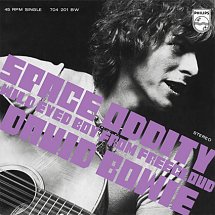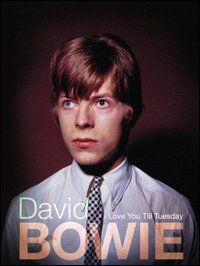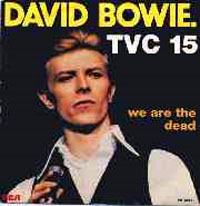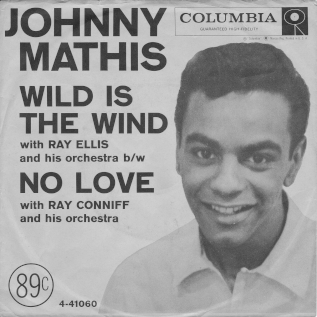Related Research Articles

Hunky Dory is the fourth studio album by the English musician David Bowie, released in the United Kingdom on 17 December 1971 through RCA Records. Following the release of his 1970 album, The Man Who Sold the World, Bowie took time off from recording and touring. He settled down to write new songs, composing on piano rather than guitar as on earlier tracks. Following a tour of the United States, Bowie assembled a new backing band consisting of guitarist Mick Ronson, bassist Trevor Bolder and drummer Mick Woodmansey, and began to record a new album in mid-1971 at Trident Studios in London. Future Yes member Rick Wakeman contributed on piano. Bowie co-produced the album with Ken Scott, who had engineered Bowie's previous two records.

"Space Oddity" is a song by the English singer-songwriter David Bowie. It was first released on 11 July 1969 by Philips Records as a 7-inch single, then as the opening track of his second studio album David Bowie. Produced by Gus Dudgeon and recorded at Trident Studios in London, it is a tale about a fictional astronaut named Major Tom; its title and subject matter were partly inspired by 2001: A Space Odyssey (1968) and Bowie's feelings of alienation at that point in his career. One of the most musically complex songs he had written up to that point, it represented a change from the music hall-influenced sound of his debut to a sound akin to psychedelic folk and inspired by the Bee Gees.

David Bowie is the second studio album by the English musician David Bowie, originally released in the United Kingdom on 14 November 1969 through Mercury affiliate Philips Records. Financed by Mercury on the strength of "Space Oddity", the album was recorded from June to October 1969 at Trident Studios in London. Gus Dudgeon produced "Space Oddity", while Tony Visconti produced the rest of the album. It featured an array of collaborators, including Herbie Flowers, Rick Wakeman, Terry Cox and the band Junior's Eyes.

Love You till Tuesday is a promotional film designed to showcase the talents of a 22-year old David Bowie, made in 1969. The film was an attempt by Bowie's manager, Kenneth Pitt, to bring Bowie to a wider audience. Pitt had undertaken the film after a suggestion by Günther Schneider, producer of German TV show 4-3-2-1 Musik Für Junge Leute for the ZDF network. The film ended up being shelved, and was not released until 1984, when it finally came out on VHS. A DVD version was released in the UK in 2005.

"John, I'm Only Dancing" is a song by the English musician David Bowie, originally released as a non-album single on 1 September 1972. A glam rock and R&B number, the lyrics describe a situation in which the narrator informs his lover not to worry about the girl he is with because he is "only dancing" with her. Although ambiguous, many interpreted it as concerning a gay relationship. Recorded in London in June 1972, it was boosted by a low-budget promotional video directed by Mick Rock. It reached number 12 in the UK; RCA refused to release it in America due to its suggestive lyrical content.

"Sorrow" is a song first recorded by the McCoys in 1965 and released as the B-side to their cover of "Fever". It became a big hit in the United Kingdom in a version by the Merseys, reaching number 4 on the UK chart on 28 April 1966. A version by David Bowie charted worldwide in 1973.

"TVC 15" is a song by the English musician David Bowie, released on his 1976 album Station to Station. RCA Records later released it as the second single from the album on 30 April 1976. The song was recorded in late 1975 at Cherokee Studios in Los Angeles. Co-produced by Bowie and Harry Maslin, the recording featured guitarists Carlos Alomar and Earl Slick, bassist George Murray, drummer Dennis Davis, pianist Roy Bittan and Warren Peace on backing vocals. The upbeat song is mostly art rock performed in a style reminiscent of the 1950s. Lyrically, the song concerns a character's girlfriend being eaten by a television set. It was inspired by a dream of Iggy Pop's and Bowie's role in The Man Who Fell to Earth (1976). Some lyrics are also influenced by the Yardbirds and Kraftwerk.

"Wild Is the Wind" is a song written by Dimitri Tiomkin and Ned Washington for the 1957 film Wild Is the Wind. Johnny Mathis recorded the song for the film and released it as a single in November 1957. Mathis' version reached No. 22 on the Billboard chart. It was nominated for an Academy Award for Best Song in 1958, but lost to "All the Way" by Jimmy Van Heusen and Sammy Cahn from The Joker is Wild.
"Unwashed and Somewhat Slightly Dazed" is a song by the English musician David Bowie, released on his 1969 album David Bowie. It was one of the first songs produced by Tony Visconti.
"Wild Eyed Boy from Freecloud" is a song written by David Bowie, first recorded in June 1969 and released as a B-side to his single "Space Oddity". Bowie then rerecorded the song for his second eponymous album.
"All the Madmen" is a song written by the English singer-songwriter David Bowie in 1970 for his album The Man Who Sold the World, released later that year in the US and in April 1971 in the UK. One of several tracks on the album about insanity, it has been described as depicting "a world so bereft of reason that the last sane men are the ones in the asylums".
"Black Country Rock" is a song by the English musician David Bowie, released on his 1970 album The Man Who Sold the World. The song was recorded in May 1970, with sessions taking place at Trident and Advision Studios in London. The lineup featured Bowie on lead vocals, guitarist Mick Ronson, bassist/producer Tony Visconti, drummer Mick Woodmansey and Ralph Mace on Moog synthesiser. The track was mostly composed by Ronson and Visconti, who developed it using a basic song sketch from Bowie. Labelled under the working title "Black Country Rock", Bowie used the title to write the lyrics towards the end of the sessions, resulting in a repeated two-line verse and chorus. A blues rock and hard rock number, Bowie imitates T. Rex's Marc Bolan in his vocal performance.

"Queen Bitch" is a song by the English singer-songwriter David Bowie. It was originally released on his 1971 album Hunky Dory before appearing as the B-side of the single "Rebel Rebel" in the United Kingdom in early 1974. Co-produced by Bowie and Ken Scott, the lineup consisted of the musicians who would later become known as the Spiders from Mars: Mick Ronson, Trevor Bolder and Mick Woodmansey.

"Velvet Goldmine" is a song by the English singer-songwriter David Bowie. A glam rock number with lyrical references to oral sex, it was originally recorded on 11 November 1971 at Trident Studios in London during the sessions for his 1972 album The Rise and Fall of Ziggy Stardust and the Spiders from Mars. It was ultimately left off the album and subsequently released as a B-side of the UK re-release of "Space Oddity" in 1975. Praised by biographers as an undervalued classic, it later appeared on compilation albums, including on Re:Call 1, part of the Five Years (1969–1973) boxed set, in 2015. Its namesake was used for Todd Haynes's 1998 film of the same name.
"Word on a Wing" is a song written and recorded by the English singer-songwriter David Bowie in 1975 for the Station to Station album, where it appears as the closing track of the LP's first side.
"Shadow Man" is a song written by the English singer-songwriter David Bowie. It was first recorded on 15 November 1971 at Trident Studios in London during the sessions for The Rise and Fall of Ziggy Stardust and the Spiders from Mars (1972) and left unreleased. A folk ballad, the lyrics discuss topics of self-identity and doubling, and the impact one's present self has on their future lives, themes some linked to the Shadow concepts of Carl Jung.
"I Pity the Fool" is a soul blues song originally recorded by Bobby Bland in 1961 for his first Duke Records album, Two Steps from the Blues. Many music writers believe it was written by Joe Medwick, although Duke owner Don Robey appears on the songwriting credits.
"Andy Warhol" is a song written by the English singer-songwriter David Bowie in 1971 for the album Hunky Dory. It is an acoustic song about one of Bowie's early artist inspirations, the American pop artist Andy Warhol.
"Soul Love" is a song by the English singer-songwriter David Bowie from his 1972 album The Rise and Fall of Ziggy Stardust and the Spiders from Mars. Co-produced by Bowie and Ken Scott, it features Bowie's backing band known as the Spiders from Mars – Mick Ronson, Trevor Bolder and Mick Woodmansey. It was recorded on 12 November 1971 at Trident Studios in London and features a saxophone solo from Bowie and a guitar solo from Ronson. Lyrically, the song is about numerous characters dealing with love before the impending disaster that will destroy Earth as described in the album's opening track "Five Years". Like most tracks on the album, the song was rewritten to fit the Ziggy Stardust narrative.
"Let Me Sleep Beside You" is a song written and recorded by the English singer-songwriter David Bowie. It was recorded on 1 September 1967 at Advision Studios in London and marked the beginning of Bowie's working relationship with producer Tony Visconti, which would last for the rest of Bowie's career. A departure from the pop and music hall-influenced material of Bowie's 1967 self-titled debut album and other singles for Deram Records, the song displays a more rock-oriented sound with a cello arrangement from Visconti. The impressionist lyrics also depart from Bowie's prior works, describing love using the act of sleeping together rather than through emotional attachment. The song was rejected by Deram for release as a single, purportedly due to the risqué title. It remained unreleased until 1970's The World of David Bowie compilation.
References
- ↑ Chris Welch (1999). We Could be Heroes
- ↑ O'Leary 2015, chap. 3.
Sources
- O'Leary, Chris (2015). Rebel Rebel: All the Songs of David Bowie from '64 to '76. Winchester: Zero Books. ISBN 978-1-78099-244-0.